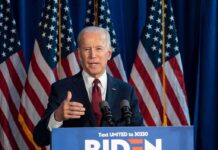
Elon Musk’s endorsement of Donald Trump suggests a seismic shift in the political landscape, raising questions about the power of tech leaders in shaping elections.
At a Glance
- Elon Musk expressed strong support for Donald Trump, fearing personal consequences if Trump loses the 2024 election.
- Musk criticized Vice President Kamala Harris and the Democratic Party, suggesting Harris is controlled by a larger agenda.
- Musk raised concerns about the Democratic Party’s alleged strategy to sway election outcomes by importing voters to swing states.
- He expressed willingness to participate in a potential second Trump administration and assist his campaign efforts.
Elon Musk’s Endorsement of Donald Trump
Elon Musk has publicly endorsed Donald Trump for the 2024 presidential election, expressing substantial worries for himself if Trump fails to win. In a conversation with Tucker Carlson, Musk stated, “If he (Donald Trump) loses, I’m f****d,” highlighting the gravity of his support. Musk believes that his vision aligns with Trump’s policies, advocating for Trump’s leadership as beneficial for America’s future.
At the heart of Musk’s endorsement is a deep-seated belief that the Democratic strategy could undermine the country’s democratic fabric. Musk claims that a failure of Trump in the upcoming election might lead to undesirable personal and national consequences, such as potential legal actions against him and shifting voter demographics caused by the Democratic Party.
Musk’s Critique of the Democratic Party
During his discussion with Tucker Carlson, Musk sharply criticized Vice President Kamala Harris and the Democrats. He suggested that Harris is merely a “puppet” within a larger political “machine” and warned against one-party dominance. Musk claimed that this could lead to “single-party rule,” threatening the democratic processes.
Musk argued that, “The people who are saying Trump is a threat to democracy are themselves a threat to democracy. One party-rule is not democracy.” His stance is a clear indication of his concerns regarding the political direction of the country under current Democratic strategies.
In the same vein, Musk expressed fears over immigration policies under a Democratic administration, alleging they are designed to create a voting bloc that would ensure their continued dominance in American politics. Musk’s comments have stirred discussions about the implications of citizenship grants and potential electoral advantages.
Tech Leaders’ Role in Politics
Musk’s endorsement underscores a significant trend where influential technology figures are beginning to play critical roles in the political domain. Traditionally, these leaders remained politically neutral; however, Musk’s active involvement and willingness to support Trump’s campaign set a precedent.
With Musk serving as a surrogate and planning campaign activities in key battleground states, his actions reflect a broader strategy aiming to sway the election’s outcome in Trump’s favor. This reflects a growing recognition of the potential influence tech leaders wield in shaping national political discourse.






























